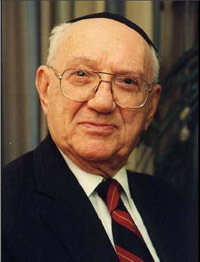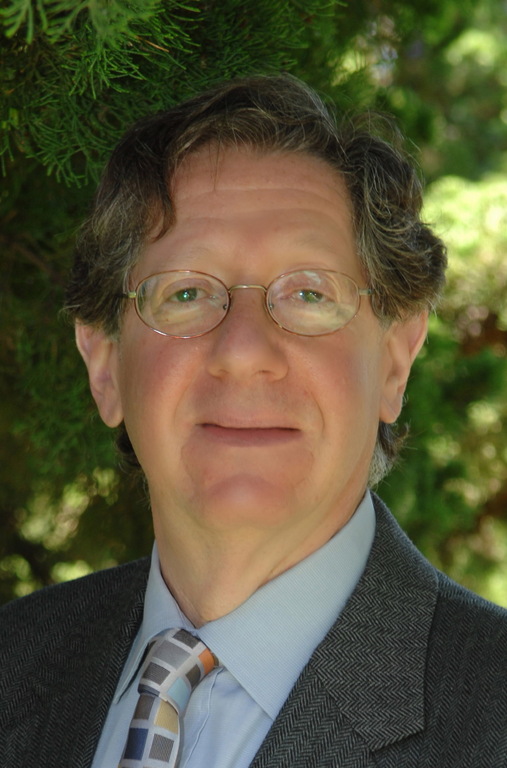The Kosher Bookworm: Rabbi Emanuel Rackman z”l
Issue of Jan. 30, 2009 / 5 Shevat 5769
December 31, 4 Tevet, marked the shloshim of Rabbi Emanuel Rackman z”l, a very talented and learned rabbi who represented a modern open version of orthodox Judaism.Rabbi Rackman, 98, was my teacher at Yeshiva University 42 years ago. At the time that I knew him, from 1964 until 1969, he was an assistant president of YU and a skilled and articulate teacher of American political theory and constitutional law. He was also a rabbinic leader of great note and a proponent of religious Zionism, regarded highly by even his most severe antagonists.
Rabbi Rackman’s long and productive life as an educational leader did not end when he left YU. By the beginning of the 1970s, in his late 60s, he made aliyah and became president of Israel’s smallest college, Bar Ilan University, and committed the rest of his life to making it into one of the world’s premier Jewish institutions of learning. By the end of his life, Bar Ilan had over 35,000 students, making it the largest such institution of higher learning in Israel. And that was not all...
Rabbi Rackman’s literary output is reflected in three books, each demonstrating his theological beliefs of being a Jewish faith actively engaged with modern culture and society.
Contrary to misleading impressions propounded by detractors, Rabbi Rackman was a deeply religious, proudly orthodox Jew who never missed an opportunity to defend these beliefs to all. Both conservative and reform Judaism had in Rackman an informed antagonist who engaged them ideologically on every theological level with the respect that he expected and got in return. Reconstructionist Judaism was of particular interest to Rackman and he wrote about Kaplan’s ideology and dispatched them with power and eloquence.
Absent in Rackman’s writing are the rancor and spleen we witness from others who meekly cover the weakness of their knowledge of their religious adversaries with name calling and book banning that are both counter-productive to the orthodox cause and not befitting of members of the rabbinate.
Rabbi Rackman’s writings reflect both a deep knowledge of his faith and a keen understanding of what motivates the beliefs of his adversaries as well as what drives and influences the choreography of their religious services and their liturgical works.
Rackman’s magnum opus was “One Man’s Judaism” (Geffen, 1970; revised, 2000) wherein we find 24 chapters organized into six sections containing essays dealing with such issues on basic Jewish theology and belief in G-d, Jewish law, and its methodology, the holiness of the Land of Israel and observations of the contemporary scene.
In “Modern Halakhah for our Time,” (Ktav, 1995) Rackman lays out further, and in greater detail, his positions on modern orthodoxy and the status of women, secular jurisprudence and law, the Church Fathers and Hebrew political thought and, most fascinating of all, his take on the sotah in Jewish law –– “ordeal or psychodrama?”
His latest book, published shortly before his passing, “A Modern Orthodox Life” (Ktav, 2008) was brought to my attention by my former classmate and friend of Rabbi Rackman, Rabbi Kenneth Hain.
Within this book are numerous mostly dated articles penned by Rackman from 1950 to 1997. This volume and its contents were chosen and compiled by his son Joseph who wrote the introduction.
Many of these essays are texts of some of Rabbi Rackman’s finest divrei Torah as well as those dealing with inyonei d’yoma (topics relating to daily life). Rackman’s forceful observations and opinions as well as his foresight are truly enhanced with the knowledge of the date of their having been written. Each one is a rhetorical gem that has to be read in its entirely to be best appreciated. A reviewer’s summary will not do them justice.
In concluding my tribute, I say the following:
Rabbi Rackman was not just a Jewish leader, a rav u’manhig, both here on the south shore at Sha’aray Tefillah, and at Fifth Avenue Synagogue in Manhattan; he was an articulate and brave advocate for his beliefs and on behalf of his people.
My own life was enhanced by having known him and by having experienced his teaching prowess. He was the best and greatest teacher I ever had.
May the legacy and memory of Rabbi Emanuel Rackman, as preserved in his many acts of chesed for agunos and others, serve as an example to emulate in the name of the abundant rachmanus (compassion) he had for his fellow human being.

 48.0°,
Overcast
48.0°,
Overcast 







